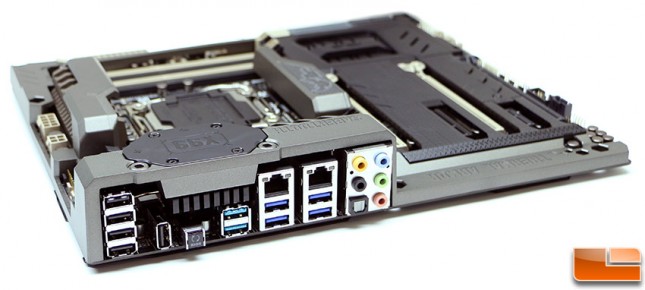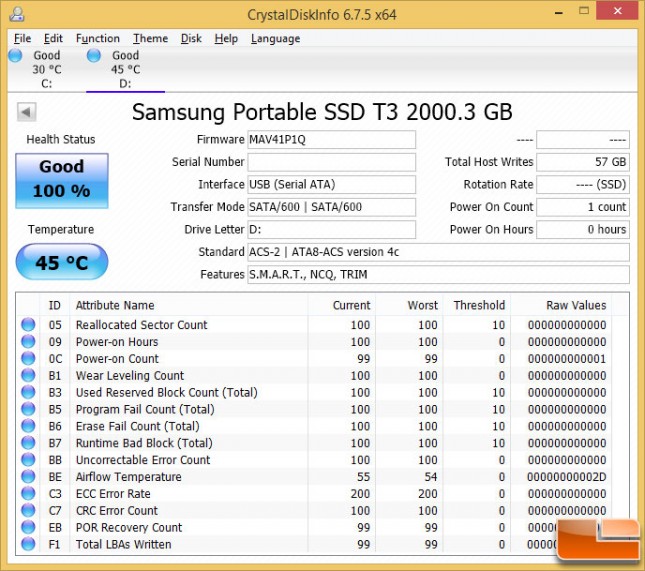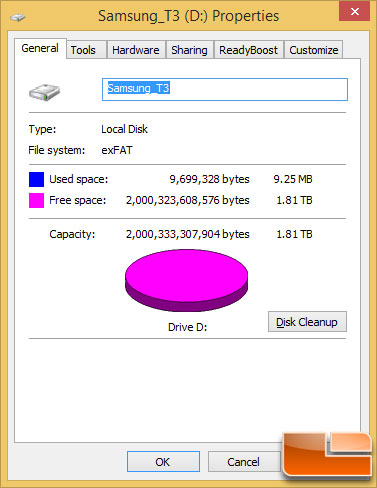Samsung Portable SSD T3 2TB Review
The SSD Benchmark Test System
Before we look at the numbers, lets take a brief look at the test system that was used. All testing was done on a fresh install of Windows 8.1 Pro 64-bit and benchmarks were completed on the desktop with no other software programs running. This means windows defender, windows update, disk fragmentation and everything else that would interfere with testing was disabled. Windows 8.1 also had the power option set to high performance. We also disabled Turbo mode on the Intel Core i7-5960X to ensure our numbers are spot on and repeatable. We used the boards integrated USB 3.1 port on the rear I/O panel to test the Samsung Portable SSD T3.
The Intel X99 platform that we used to test the storage drives was based around the ASUS X99 Sabertooth motherboard with BIOS 1801 that came out on 06/25/2015. We used Intel RST storage drivers, the exact version was 13.1.0.1058. The Crucial Ballistix DDR4 32GB 2400MHz memory kit was run at 2666MHz with 15-15-15-28 1T memory timings. The Corsair Neutron XT 240GB SSD was used as the primary drive.
Intel X99 Test Bench
| Intel LGA 2011v3 Test Platform | |||||
|---|---|---|---|---|---|
| Component | Brand/Model | Live Pricing | |||
|
Processor |
Core i7 5960X | ||||
|
Motherboard |
ASUS X99 Sabertooth | ||||
|
Memory |
Crucial Ballistix 2400MHz 32GB | ||||
|
OS Drive |
Corsair Neutron XT 240GB | ||||
|
Power Supply |
Corsair AX860i | ||||
|
Operating System |
Windows 8.1 Pro 64-Bit | ||||
Samsung Portable SSD T3 CrystalDiskInfo:
The readout on CrystalDiskInfo 6.7.5 shows that the Samsung Portable SSD T3 2TB drive S.M.A.R.T., NCQ and TRIM. The drive we received had firmware version MAV41P1Q installed and that is the version that we used for general testing and benchmarking.
Samsung Portable SSD T3 2TB Capacity:
By default the Samsung Portable SSD T3 2TB drives uses the exFAT file system that allows for large content to be stored and used on a wide variety of operating system. Samsung designed the Portable SSD T3 to be used across Windows, Mac and Android devices and the AES 256-bit hardware encryption also will work across all three platforms if you choose to enable that level of security.
Let’s have a look at the performance!



